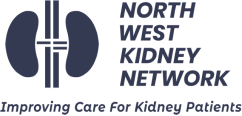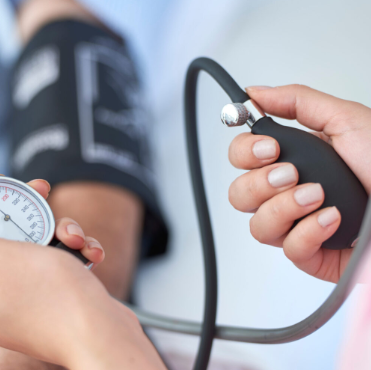Kidney disease, also known as renal disease, refers to any condition that affects the function of the kidneys, which are responsible for filtering waste and excess fluid from the blood. When the kidneys are damaged or not working properly, waste products and fluids can build up in the body, leading to various health issues.
There are two main types of kidney disease:
-
Chronic Kidney Disease (CKD):
-
Is a common condition often associated with getting older. It can affect anyone, but it's more common in people who are black or of south Asian origin. CKD can get worse over time and eventually the kidneys may stop working altogether, but this is uncommon. Many people with CKD are able to live long lives with the condition.
-
-
Acute Kidney Injury (AKI):
-
This is a sudden and often temporary loss of kidney function, usually caused by an injury or infection. It can occur due to factors such as dehydration, severe infections, medications, or other medical conditions that affect the kidneys.
-
The risk factors for kidney disease include a combination of lifestyle factors, health conditions, and genetic predispositions that can increase your chances of developing kidney problems. Here are the most common risk factors:
Chronic Health Conditions:
-
Diabetes: High blood sugar can damage the small blood vessels in the kidneys over time, leading to diabetic kidney disease (diabetic nephropathy).
-
High blood pressure (Hypertension): Uncontrolled high blood pressure can cause damage to the blood vessels in the kidneys, which impairs their ability to filter waste and excess fluid.
Family History:
-
Genetics: If you have a family history of kidney disease, especially a parent or sibling who has experienced kidney problems, your risk is higher.
Age:
-
Kidney function naturally declines with age, especially after the age of 60. The kidneys become less efficient at filtering waste, which can lead to kidney disease over time.
Heart Disease:
-
People with heart disease or cardiovascular problems are at a higher risk for kidney disease because both conditions affect the blood vessels and circulation. The relationship between the heart and kidneys is often referred to as the "cardiovascular-renal connection."
Obesity:
-
Being overweight or obese increases your risk of developing conditions like diabetes and high blood pressure, both of which can contribute to kidney disease.
Smoking:
-
Smoking harms blood vessels and reduces blood flow to the kidneys, impairing their ability to filter waste properly. It also accelerates the progression of kidney disease in people who already have it.
Poor Diet:
-
A diet high in salt, processed foods, and unhealthy fats can contribute to high blood pressure and obesity, which in turn increase the risk of kidney disease.
-
Low intake of fruits and vegetables may also contribute to kidney problems.
Medications and Toxins:
-
Long-term use of certain medications, such as non-steroidal anti-inflammatory drugs (NSAIDs) (e.g., ibuprofen, aspirin), can harm the kidneys if taken excessively or over long periods.
-
Certain antibiotics and chemotherapy drugs can also cause kidney damage.
Previous Kidney Damage:
-
Past kidney infections, kidney stones, or trauma to the kidneys (like injury or surgery) can increase the risk of developing chronic kidney disease in the future.
Ethnicity:
-
Certain ethnic groups, such as African Americans, Hispanic Americans, Native Americans, and Asian Americans, are at a higher risk for kidney disease. This is partly due to higher rates of diabetes and high blood pressure in these populations.
Urinary Tract Obstruction:
-
Conditions like enlarged prostate, kidney stones, or bladder infections can cause blockage in the urinary tract, which can lead to kidney damage if not addressed.
Dehydration:
-
Chronic dehydration or a lack of proper fluid intake can affect kidney function. The kidneys need adequate water to filter waste properly, and dehydration can lead to kidney damage over time.
Polycystic Kidney Disease (PKD):
-
PKD is a genetic disorder that causes fluid-filled cysts to grow in the kidneys. Over time, these cysts can impair kidney function and lead to kidney failure.
Recurrent Kidney Infections:
-
Repeated or chronic kidney infections (like pyelonephritis) can cause scarring in the kidneys, which increases the risk of kidney disease.
-
Manage chronic conditions like diabetes and hypertension with proper medication, diet, and lifestyle changes.
-
Stay active and maintain a healthy weight.
-
Avoid smoking and limit alcohol consumption.
-
Eat a kidney-friendly diet, rich in fruits, vegetables, and whole grains while limiting salt, processed foods, and excessive protein.
-
Stay hydrated by drinking plenty of water and avoiding excessive amounts of sugary or caffeinated drinks.
If you have any of these risk factors, it’s important to talk to your doctor about regular check-ups and possibly kidney function tests to catch any problems early. Early detection and lifestyle changes can help slow the progression of kidney disease
-
Reduced Kidney Function: Kidney disease means that your kidneys are not able to filter the blood as efficiently as they should. In early stages, the kidneys may still function well enough to prevent noticeable symptoms, but as the disease progresses, waste products can build up in the blood.
-
Stages of Kidney Disease: Kidney disease is often classified into five stages, based on the glomerular filtration rate (GFR), which measures how well the kidneys are filtering blood:
-
Stage 1: Normal kidney function but with signs of damage.
-
Stage 2: Mild decrease in kidney function, still with little or no symptoms.
-
Stage 3: Moderate decrease in kidney function, symptoms may start to appear.
-
Stage 4: Severe decrease in kidney function, you may need dialysis or other treatments.
-
Stage 5: Kidney failure, also called end-stage renal disease (ESRD), where the kidneys can no longer function and dialysis or a kidney transplant is needed.
-
What It Means for You:
-
Lifestyle Changes: Depending on the stage and cause of your kidney disease, you may need to make lifestyle changes. This could include adjustments to your diet (low sodium, low potassium, low protein), maintaining a healthy weight, exercising, controlling blood pressure, and monitoring blood sugar if you have diabetes.
-
Treatment Options: Your doctor may recommend treatment options based on the cause and severity of your kidney disease. This could include:
-
Medications to manage blood pressure, blood sugar, and symptoms like swelling.
-
Dialysis if your kidneys are no longer able to filter waste on their own (this is typically for later stages of kidney disease).
-
Kidney Transplant in cases of end-stage kidney disease, when dialysis is no longer effective.
-
There are usually no symptoms of kidney disease in the early stages. It may only be diagnosed if you have a blood or urine test for another reason and the results show a possible problem with your kidneys.
At a more advanced stage, symptoms can include:
- tiredness
- swollen ankles, feet or hands
- shortness of breath
- feeling sick
- blood in your pee (urine)
See a GP if you have persistent or worrying symptoms that you think could be caused by kidney disease.
-
Regular Monitoring: Regular check-ups are essential to monitor kidney function and to assess for any changes in your health. Your doctor may do blood and urine tests to check for waste products, kidney function, and signs of damage.
-
Controlling Risk Factors: If you have underlying conditions like diabetes or high blood pressure, controlling these conditions is critical to slow the progression of kidney disease.
-
Diet and Hydration: You may need to follow a special diet that helps support kidney function and reduces stress on the kidneys. This could involve limiting sodium, potassium, phosphorus, and protein intake.
-
Ask Your Doctor About the Stage and Cause: Understanding the specific cause of your kidney disease and what stage you are in will help you and your healthcare team create a treatment plan. Your doctor may refer you to a nephrologist (kidney specialist) for further evaluation and management.
-
Follow-Up Appointments: It’s important to attend all follow-up appointments to track your kidney function and adjust your treatment plan as needed.
Kidney disease is a serious condition, but with early detection, lifestyle changes, and medical treatment, many people are able to manage it effectively and slow its progression. If you have concerns or questions, don’t hesitate to discuss them with your healthcare team. They will be able to provide more specific guidance based on your individual case.
If you think you have symptoms of kidney disease, it's important to take action promptly. Early detection and management can help slow the progression of the disease and prevent complications. Here’s what you should do:
Make an Appointment with Your Doctor:
The first step is to schedule a visit with your healthcare provider. Share your concerns and describe your symptoms in detail. Common symptoms of kidney disease include:
-
Fatigue or weakness
-
Swelling in the legs, ankles, or around the eyes
-
Changes in urination (e.g., needing to urinate more or less often, foamy urine, blood in urine)
-
Shortness of breath
-
Nausea or vomiting
-
Loss of appetite or unexplained weight loss
-
Difficulty concentrating or feeling confused
Your doctor may recommend specific tests to check your kidney function, including:
-
Blood tests to check levels of waste products like creatinine and to measure your glomerular filtration rate (GFR).
-
Urine tests to look for protein (proteinuria), blood, or other signs of kidney damage.
-
Imaging tests, such as an ultrasound, to examine the size and structure of your kidneys.

